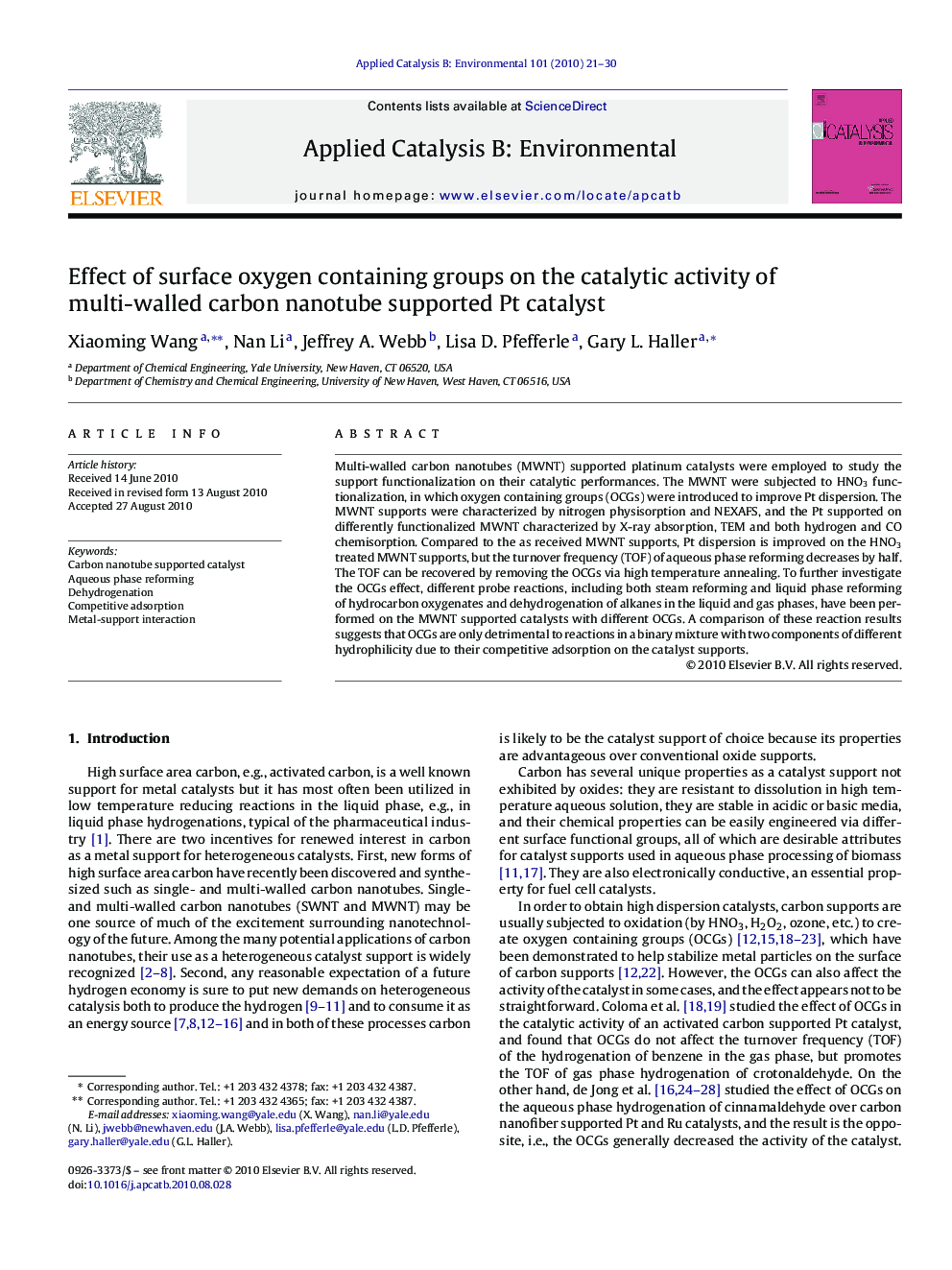| Article ID | Journal | Published Year | Pages | File Type |
|---|---|---|---|---|
| 47076 | Applied Catalysis B: Environmental | 2010 | 10 Pages |
Multi-walled carbon nanotubes (MWNT) supported platinum catalysts were employed to study the support functionalization on their catalytic performances. The MWNT were subjected to HNO3 functionalization, in which oxygen containing groups (OCGs) were introduced to improve Pt dispersion. The MWNT supports were characterized by nitrogen physisorption and NEXAFS, and the Pt supported on differently functionalized MWNT characterized by X-ray absorption, TEM and both hydrogen and CO chemisorption. Compared to the as received MWNT supports, Pt dispersion is improved on the HNO3 treated MWNT supports, but the turnover frequency (TOF) of aqueous phase reforming decreases by half. The TOF can be recovered by removing the OCGs via high temperature annealing. To further investigate the OCGs effect, different probe reactions, including both steam reforming and liquid phase reforming of hydrocarbon oxygenates and dehydrogenation of alkanes in the liquid and gas phases, have been performed on the MWNT supported catalysts with different OCGs. A comparison of these reaction results suggests that OCGs are only detrimental to reactions in a binary mixture with two components of different hydrophilicity due to their competitive adsorption on the catalyst supports.
Graphical abstractFigure optionsDownload full-size imageDownload as PowerPoint slideResearch highlights▶ After HNO3 reflux, oxygen containing groups are mostly on the outer surface of CNT. ▶ Oxygen containing groups on CNT deactivate reactions with binary reactants. ▶ The deactivation is from competitive adsorption of two components in the reactant. ▶ Oxygen containing groups also affect the metal particle size on CNT.
